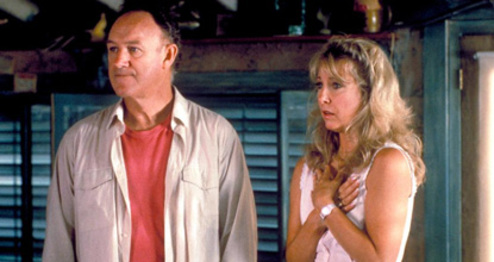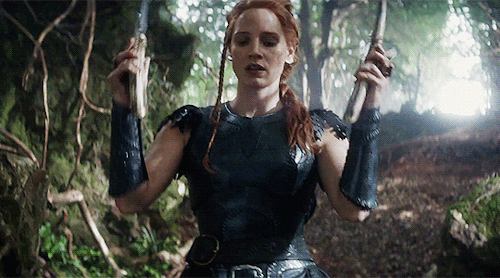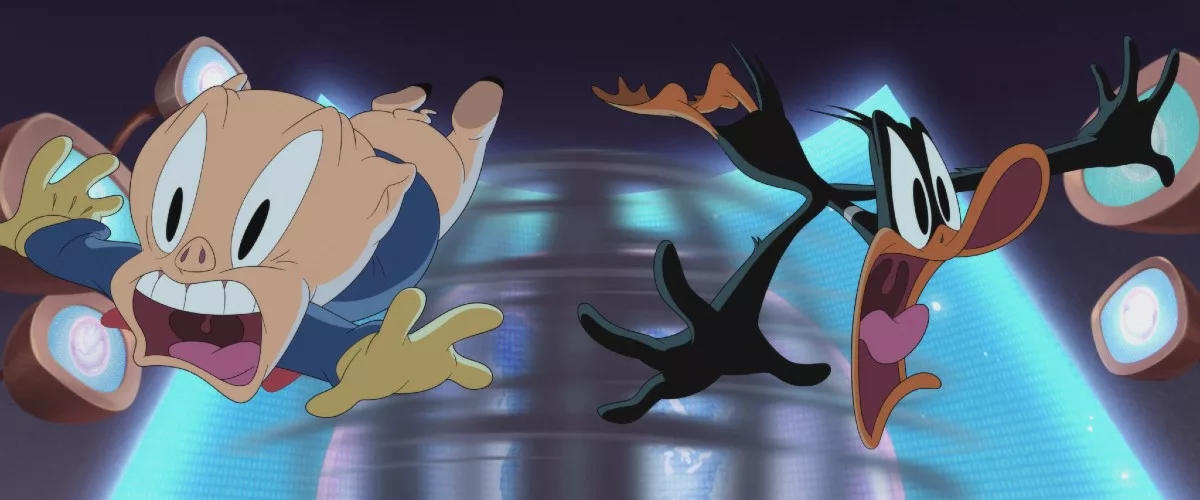Brainstorm (8/10)
This is the first time I've sat down to watch this film since 1984. As a teenager I thought it was most amazing movie I'd ever seen. Viewing it today, its imperfections are more obvious -- however, it remains a very impressive stab at the science fiction genre, and holds-up incredibly well.
The premise is fascinating: scientists at a research institute have perfected a device that can record a person's experiences, memories and feelings directly from their brain, store them on tape, and enable someone to playback and experience those same things as if it were happening to them.
Unlike Spielberg, who (at the time) was casting mostly character actors in his movies, director Douglas Trumbull assembles an ensemble of "acclaimed performers"; not stars per se, but well-respected actors of note -- Christopher Walken, Natalie Wood, Louise Fletcher, Cliff Robertson. And they aren't wasted either.
Brainstorm not only explores scientific speculation, but endeavors (often successfully) to place human relationships at the forefront of the story, in depicting how this invention affects the character's lives. Nowhere is this better expressed than in the storyline of Walken and Wood, who play a couple going through an acrimonious divorce -- until Walken uses the machine to "record" how he truly feels toward her. Unable to verbalize his love, he "records and plays back" his reminiscences of their courtship, wedding and early years of their marriage for her -- and the result is their marriage is saved. It is by far the most touching sequence in the film.
Much of
Brainstorm's appeal also lies its visual style. This truly is one of the best-looking science fiction films ever made. Matthew Yuricich's cinematography is luminously gorgeous, bathing the film in a naturalistic but engaging (and at times almost heavenly) light. John Vallone's production designs, from the scientific lab apparatuses, to the living and work spaces, is eye-catching and believable. Trumbull's decision to shoot all the "real world" scenes in 4:3 35mm (with monaural sound), but all the virtual reality footage in Super Panavision (and in stereo) made the film a much-more immersive experience. This all contributes to really livening-up what is essentially an interior "talkie". Unfortunately, this inventive use of two different film gauges didn't transfer well to home video in the 1980s (the virtual reality scenes were merely squeezed for videocassette and TV broadcast -- and the difference in resolution between 35mm and 70mm was invisible in standard definition video). Happily, modern transfers have made this inventive photographic choice much easier to appreciate.
Although released in 1983, Brainstorm was filmed in 1981, and often looks like a film from the 1970s (especially in the costuming) -- which isn't necessarily a problem, but it does feel more like a product of the time than, say,
Close Encounters or
E.T. That said, the gadgetry in
Brainstorm still looks terrific in 2025. Yes, the memory recording device uses digital tape, stored on spools, which of course no one uses anymore -- but it comes off as functional, and real, and is
interesting to look at. If this film was made today, the memory data would be stored on flash drives. Boring.
Moreover
Brainstorm's exploration of virtual reality, and its extensive climax revolving around computer hacking, were way ahead of the time in 1983. As such the film was very prescient -- probably too prescient for its own good. I suspect its box office failure was partly down to early 80s audiences, for whom "science fiction" meant more familiar tropes (i.e. spaceships and aliens). In addition, the tragic death of Natalie Wood certainly didn't help the movie's appeal.
The crowning glory of
Brainstorm is of course James Horner's score. I loved
Star Trek II and (more particularly)
Krull, but
Brainstorm is the one that really sold me on Horner. This score made it clear he was set to take his place in the pantheon of great Hollywood composers -- specifically in the tradition begun by Williams and Goldsmith. Horner certainly lived-up to that promise (until he was sadly taken from us ten years ago). His music really brings the film alive, as effectively uplifting the moments of human emotion as the science fiction elements. His big climactic cue, with its blend of romantic and avant garde styles, and the ecclesiastical climax accompanying the shots of Heaven, is among his finest work, and I still think
Brainstorm is in his top five best scores.
Brainstorm also gets a lot of points for presenting a story of scientific speculation without getting bogged-down in a lot of technobabble. However I do think that the film ultimately poses questions it fails to answer. At the climax Walken accesses the tape which recorded Louise Fletcher's death, leading to an out-of-body and near-death experience (and glimpse of Heaven -- as well as Hell). It's an extraordinary sequence, amazingly-realized -- but what is the payoff? It sets-up a philosophical and religious question, which the film pretty-much ignores, and that's a bit of a shame. The film is ultimately content to being a sci-fi thriller / love story. The film also falters when the protagonists hack into the computers running the research institute's assembly line, and it offers-up a bunch of childish slapstick pratfalls (which are glaringly at odds with the film's otherwise serious tone). That said, when
Brainstorm adheres the scientific and human interest of the story, it does work beautifully.






